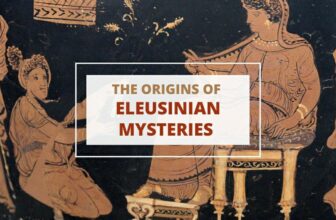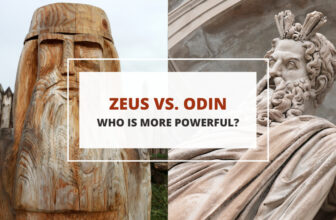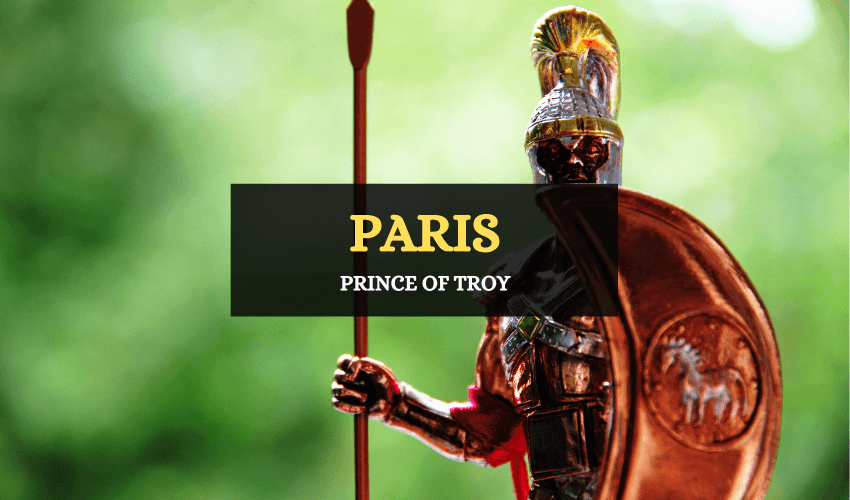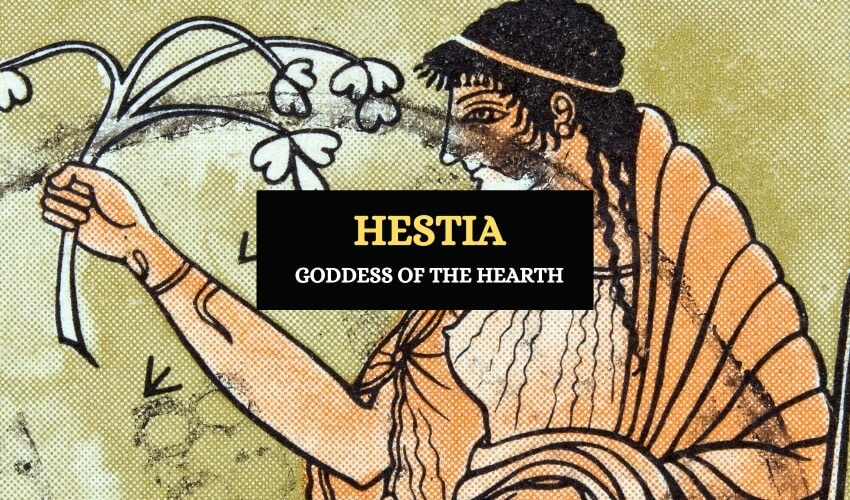
Table of Contents
Hestia (Roman equivalent Vesta) was the Greek goddess of the hearth and the home and was the protectress of the family. Although she was not involved in wars and quarrels, like the other Olympian gods, and didn’t feature much in Greek mythology, she was highly important and widely worshipped in everyday society.
Origins of Hestia
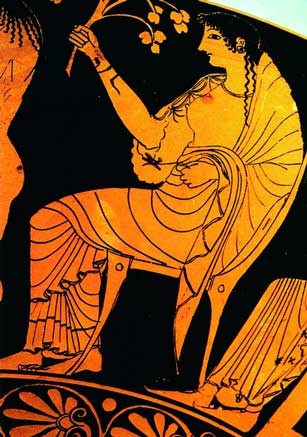
Hestia was the firstborn daughter of the Titans Cronus and Rhea. When Cronus learned of the prophecy that one of his children would put an end to his life and reign, he swallowed them all in an attempt to thwart fate. His children included Chiron, Demeter, Hera, Hades, Poseidon and Zeus. However, he wasn’t able to swallow Zeus as Rhea managed to hide him. Zeus would later return to free all his siblings and challenge Cronus, thus fulfilling the prophecy. Since Hestia was the first one to be swallowed, she was the last one to come out of the insides of Cronus.
Some sources count Hestia as one of the 12 Olympians, and some others replace her with Dionysius. There are tales in which Hestia herself resigns her position on Mount Olympus and gives Dionysus her place.
Hestia claimed that since she was the protectress of the family, she would be received with the greatest honors in any mortal city.
Hestia’s Role and Significance
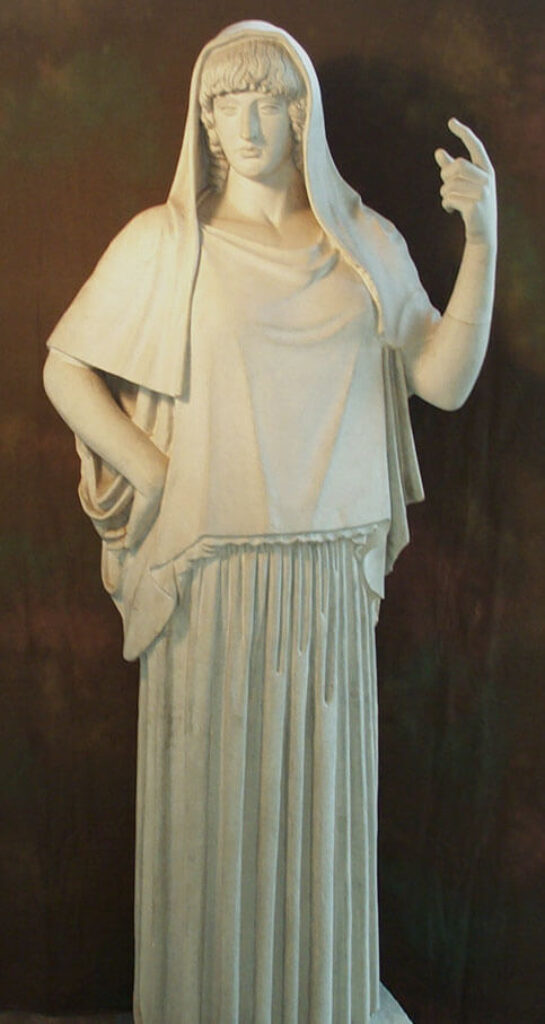
Hestia was the goddess of the hearth, home, domesticity, family and state. The very name Hestia means hearth, fireplace or altar. She had to do with the affairs of the family and the home but also with the civic affairs. In ancient Greece, her official sanctuary was in the prytaneum, the public hearth of the city. Any time a new colony or town was founded, flames from Hestia’s public hearth would be carried to light the hearth in the new colony.
Hestia was also the goddess of the sacrificial flames, so she always received a share of the sacrifices offered to other gods. She was invoked first in any prayers, sacrifices, or oaths for her oversight over the offerings. The saying “To begin from Hestia….” derived from this practice.
The Greeks also considered Hestia to be the goddess of hospitality and the protection of guests. The preparation of bread and the cooking of the family meal were under the protection of Hestia too.
Hestia was a virgin goddess. Apollo and Poseidon tried to marry her, but she refused them and requested Zeus to make her a virgin goddess for the rest of her days. The god of thunder agreed, and Hestia took her royal place by the fireplace.
Hestia is not a prominent figure in Greek art, so her depictions are scarce. She was depicted as a veiled woman, often with a kettle or with flowers. In some cases, it is difficult to tell Hestia apart from other goddesses since she does not have signature objects or apparel.
Below is a list of the editor’s top picks featuring the statue of Hestia.
Hestia and the Other Gods
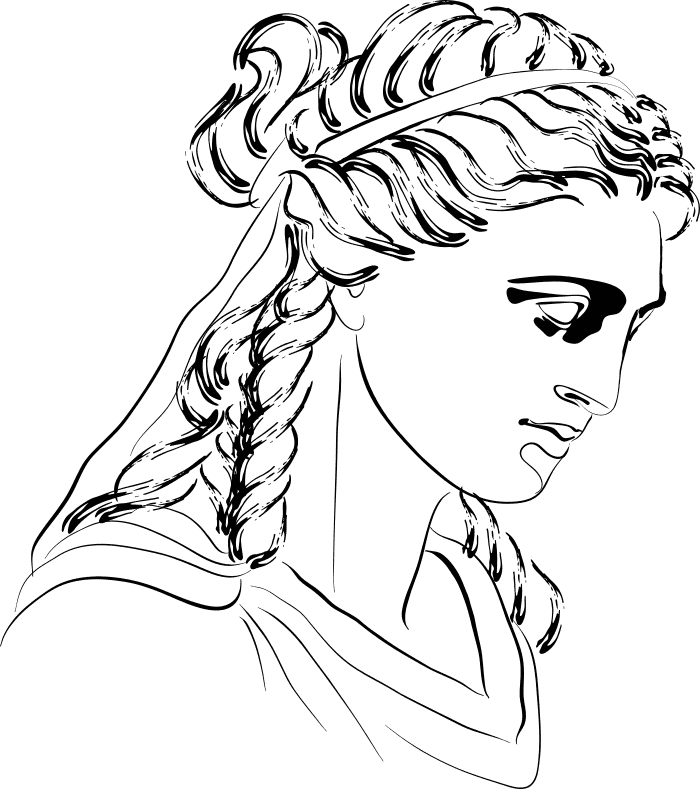
Besides the conflict between Poseidon and Apollo to marry the goddess, there are no records of Hestia’s interactions with other gods except for Zeus. She took no part in the gods’ involvement in human wars or the conflicts and quarrels between the Olympians.
With her low profile, the goddess of the hearth has little entries in Greek tragedies. She is one of the least mentioned gods in the writings of the great Greek poets. Since the beginning of the reign of the Olympians, Hestia detached herself from most godly affairs and remained available when Zeus needed her.
Because of this detachment from the other gods and the little mentioning of the poets, Hestia is not the most renowned goddess on Mount Olympus.
The Hearth in Ancient Greece
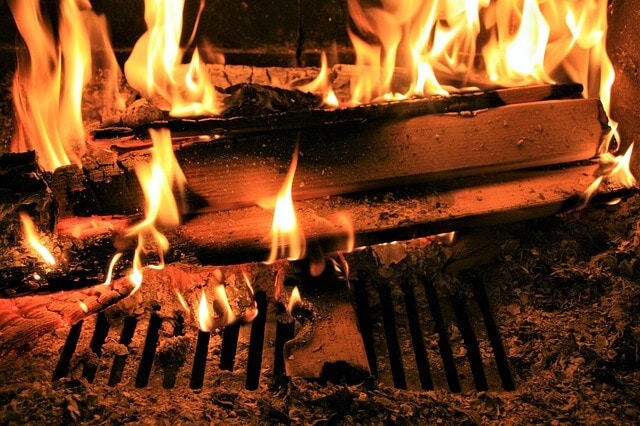
Nowadays, the hearth has little importance in homes and cities, but in Ancient Greece, where there was no technology, the hearth was a central piece in society.
The hearth was a mobile brazier that was used to keep warm, to cook, and as a source of light in the homes of ancient Greece. The Greeks also used the hearth to welcome visitors, to honor a dead person, and in some cases, to make an offering to the gods during the daily meals. The lit hearths in all Greece were worship places for all the gods.
In the great cities, the hearth was placed in the central square where the important civic affairs were held. There were unmarried women in charge of guarding the hearth since this had to remain lit all the time. These communal hearths served as a place to offer sacrifices to the gods.
It is said that after the Greeks repelled the Persian invasion, the hearths of all cities were put out and relit to purify them.
Hestia’s Worshippers
Given the importance of the hearths in ancient Greece, Hestia played a central role in Greek society and was revered by all. In Greek religion, she is one of the foremost figures and had a good share in prayers. There were cults and hymns for Hestia in the whole Greek territory asking for her favor and blessing. Her presence in daily life was strong.
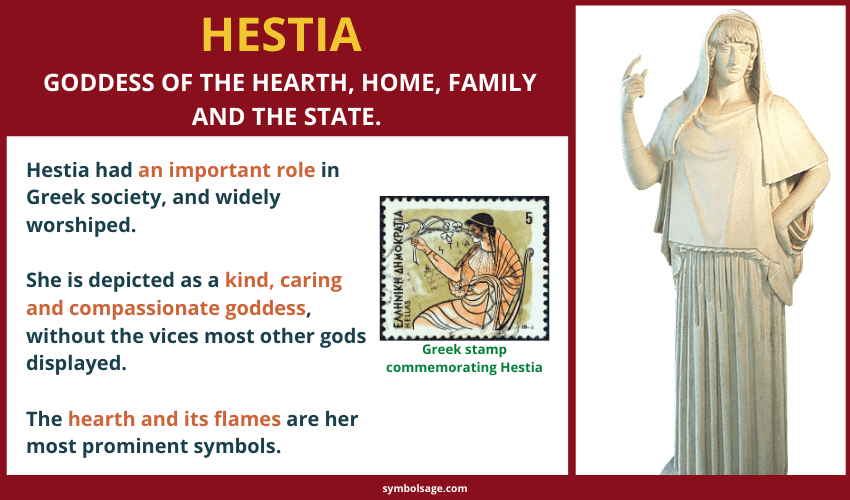
Hestia Facts
Hestia’s parents are Cronus and Rhea.
Hestia is the goddess of the hearth, home, domesticity, virginity, family and the state.
Hestia chose to remain a virgin and didn’t marry. She rejected the interest of both Poseidon and Apollo.
Hestia’s siblings include Demeter, Poseidon, Hera, Hades, Zeus and Chiron.
Hestia’s symbols are the hearth and its flames.
Hestia appears kind, mild and compassionate. She didn’t get involved with wars and judgements and doesn’t display the human vices that most of the other gods did.
Yes, she’s one of the twelve Olympians.
To Wrap It Up
Hestia was different from the almighty gods who gave their favor or their punishment to mortals depending on their interests. Since she was the only goddess exclusively focused on her area of interest, some sources even talk of her as the goddess with no mortal weaknesses. Hestia breaks the stereotype of the wrathful god and comes across as a kind figure who had compassion for mortals.







